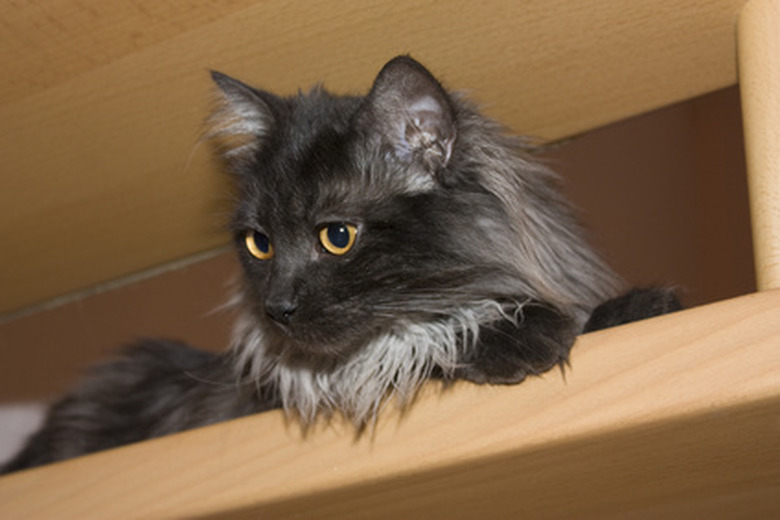Benefiber For A Cat With Constipation
When a cat becomes constipated, it experiences painful and troublesome bowel movements. While not a fatal condition, feline constipation should be treated to help ease the cat's discomfort. The sooner the constipation passes, the sooner the cat will be back to feeling like its normal self.
Benefiber
Benefiber
Benefiber contains wheat dextrin, a natural soluble fiber that regulates the digestive tract. According to Benefiber.com, the product contains 100 percent natural ingredients. Feline systems do not react adversely to wheat dextrin, making the product safe for use in cats.
Symptoms
Symptoms
According to Alternative Pet Health, symptoms of feline constipation include: frequent trips to the litter box, straining to defecate, lethargy and loss of appetite. Cats should have bowel movements one to two times a day on a normal schedule; constipated cats will visit the litter box upwards of four times a day.
Treatment
Treatment
A cat can be treated for constipation at home, according to Catconstipation.org. Thoroughly mix one teaspoon of Benefiber into half a can of wet cat food, and feed it to the constipated feline twice daily. This will soften the cat's stool, easing or eliminating the constipation. The treatment should be given twice a day for three days to ensure the constipation has ended. If constipation returns, repeat the treatment until the ailment is remedied.
Veterinary Care
Veterinary Care
Your veterinarian can also prescribe a feline laxative to remedy the cat's constipation. The laxative would take the place of Benefiber when treating feline constipation. According to Alternative Pet Health, feline laxatives generally cost between $15 and $30 for the entire treatment.
Warning
Warning
Constipation lasting more than three days can signal a more serious problem. Seek veterinary care if the cat exhibits extended constipation, because surgery or prescription medication might be required. Long-term constipation can be caused by a blockage in the cat's bowels, which is a fatal condition if left untreated.
Always check with your veterinarian before changing your pet's diet, medication, or physical activity routines. This information is not a substitute for a vet's opinion.
